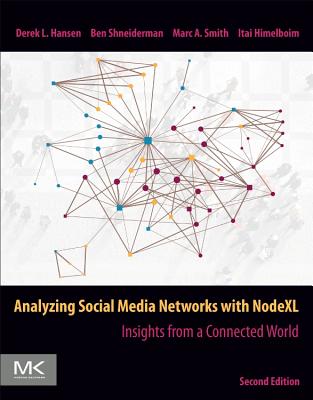買這商品的人也買了...
-
 C++ Primer, 3/e 中文版
C++ Primer, 3/e 中文版$980$774 -
 資料庫系統之理論與實務
資料庫系統之理論與實務$680$646 -
 C++ Builder 6 完全攻略
C++ Builder 6 完全攻略$690$587 -
 ASP.NET 程式設計徹底研究
ASP.NET 程式設計徹底研究$590$466 -
 Head First Java
Head First Java$1,590$1,511 -
 Java 2 教學手冊 SDK 1.4版 (Beginning Java 2 SDK 1.4 Edition)
Java 2 教學手冊 SDK 1.4版 (Beginning Java 2 SDK 1.4 Edition)$780$616 -
 鳥哥的 Linux 私房菜-伺服器架設篇
鳥哥的 Linux 私房菜-伺服器架設篇$750$638 -
 鳥哥的 Linux 私房菜─基礎學習篇增訂版
鳥哥的 Linux 私房菜─基礎學習篇增訂版$560$476 -
 CCNA Self-Study: Interconnecting Cisco Network Devices (ICND) 640-811, 640-801, 2/e
CCNA Self-Study: Interconnecting Cisco Network Devices (ICND) 640-811, 640-801, 2/e$2,390$2,271 -
 $1,068Fundamentals of Database Systems, 4/e (IE)
$1,068Fundamentals of Database Systems, 4/e (IE) -
 SCJP‧SCJD 專業認證指南 (Sun Certified Programmer & Developer for Java 2 #310-305 與310-027)
SCJP‧SCJD 專業認證指南 (Sun Certified Programmer & Developer for Java 2 #310-305 與310-027)$850$723 -
 人月神話:軟體專案管理之道 (20 週年紀念版)(The Mythical Man-Month: Essays on Software Engineering, Anniversary Edition, 2/e)
人月神話:軟體專案管理之道 (20 週年紀念版)(The Mythical Man-Month: Essays on Software Engineering, Anniversary Edition, 2/e)$480$379 -
 JSP 2.0 技術手冊
JSP 2.0 技術手冊$750$593 -
 建構嵌入式 Linux 系統
建構嵌入式 Linux 系統$780$616 -
 掌握 Java 設計之鑰
掌握 Java 設計之鑰$580$493 -
 Java Security 全方位解決方案 (Java Security Solutions)
Java Security 全方位解決方案 (Java Security Solutions)$750$593 -
 CCNA 認證教戰手冊 Exam 640-801 (CCNA Cisco Certified Network Associate Study Guide, 4/e)
CCNA 認證教戰手冊 Exam 640-801 (CCNA Cisco Certified Network Associate Study Guide, 4/e)$780$616 -
 JSP 與 Servlet 500 個應用範例技巧大全集
JSP 與 Servlet 500 個應用範例技巧大全集$590$460 -
 大師談遊戲程式設計─核心技術與演算法 (Core Techniques and Algorithms in Game Programming)
大師談遊戲程式設計─核心技術與演算法 (Core Techniques and Algorithms in Game Programming)$860$731 -
 最新 JavaScript 完整語法參考辭典 第三版
最新 JavaScript 完整語法參考辭典 第三版$490$382 -
 UML 學習手冊 (Learning UML)
UML 學習手冊 (Learning UML)$450$356 -
 Eclipse 整合開發工具 (Eclipse)
Eclipse 整合開發工具 (Eclipse)$540$427 -
 Flash 8 躍動的網頁中文版
Flash 8 躍動的網頁中文版$550$435 -
 正確學會 Photoshop CS2 的 16 堂課
正確學會 Photoshop CS2 的 16 堂課$580$458 -
 Spring 技術手冊
Spring 技術手冊$580$458
商品描述
Sometimes the simplest answer is the best. Many Enterprise Java developers,
accustomed to dealing with Java's spiraling complexity, have fallen into the
habit of choosing overly complicated solutions to problems when simpler options
are available. Building server applications with "heavyweight" Java-based
architectures, such as WebLogic, JBoss, and WebSphere, can be costly and
cumbersome. When you've reached the point where you spend more time writing code
to support your chosen framework than to solve your actual problems, it's time
to think in terms of simplicity.
In Better, Faster, Lighter Java
authors Bruce Tate and Justin Gehtland argue that the old heavyweight
architectures are unwieldy, complicated, and contribute to slow and buggy
application code. As an alternative means for building better applications, the
authors present two "lightweight" open source architectures: Hibernate--a
persistence framework that does its job with a minimal API and gets out of the
way, and Spring--a container that's not invasive, heavy or complicated.
Hibernate and Spring are designed to be fairly simple to learn and use,
and place reasonable demands on system resources. Better, Faster, Lighter
Java shows you how they can help you create enterprise applications that are
easier to maintain, write, and debug, and are ultimately much faster.
Written for intermediate to advanced Java developers, Better, Faster,
Lighter Java, offers fresh ideas--often unorthodox--to help you rethink the
way you work, and techniques and principles you'll use to build simpler
applications. You'll learn to spend more time on what's important. When you're
finished with this book, you'll find that your Java is better, faster, and
lighter than ever before
Table of Contents
Preface
1. The Inevitable Bloat
Bloat Drivers
Options
Five Principles for Fighting the Bloat
Summary2. Keep It Simple
The Value of Simplicity
Process and Simplicity
Your Safety Net
Summary3. Do One Thing, and Do It Well
Understanding the Problem
Distilling the Problem
Layering Your Architecture
Refactoring to Reduce Coupling
Summary4. Strive for Transparency
Benefits of Transparency
Who's in Control?
Alternatives to Transparency
Reflection
Injecting Code
Generating Code
Advanced Topics
Summary5. You Are What You Eat
Golden Hammers
Understanding the Big Picture
Considering Technical Requirements
Summary6. Allow for Extension
The Basics of Extension
Tools for Extension
Plug-In Models
Who Is the Customer?
Summary7. Hibernate
The Lie
What Is Hibernate?
Using Your Persistent Model
Evaluating Hibernate
Summary8. Spring
What Is Spring?
Pet Store: A Counter-Example
The Domain Model
Adding Persistence
Presentation
Summary9. Simple Spider
What Is the Spider?
Examining the Requirements
Planning for Development
The Design
The Configuration Service
The Crawler/Indexer Service
The Search Service
The Console Interface
The Web Service Interface
Extending the Spider10. Extending jPetStore
A Brief Look at the Existing Search Feature
Replacing the Controller
The User Interface (JSP)
Setting Up the Indexer
Making Use of the Configuration Service
Adding Hibernate
Summary11. Where Do We Go from Here?
Technology
Process
Challenges
Conclusion
商品描述(中文翻譯)
有時候,最簡單的答案就是最好的答案。許多企業 Java 開發者習慣於處理 Java 不斷增長的複雜性,已經養成了在有更簡單的選擇時,卻選擇過於複雜的解決方案的習慣。使用「重量級」的 Java 基礎架構(如 WebLogic、JBoss 和 WebSphere)來構建伺服器應用程式可能會非常昂貴且繁瑣。當你發現自己花更多時間在撰寫支援所選框架的程式碼,而不是解決實際問題時,是時候考慮簡單性了。
在《Better, Faster, Lighter Java》一書中,作者 Bruce Tate 和 Justin Gehtland 主張,舊有的重量級架構笨重、複雜,並且導致應用程式代碼緩慢且存在錯誤。作為構建更好應用程式的替代方案,作者提出了兩種「輕量級」的開源架構:Hibernate——一個以最小 API 完成其工作的持久性框架,並且不會干擾你的工作;以及 Spring——一個不具侵入性、重量輕且不複雜的容器。
Hibernate 和 Spring 設計上相對簡單易學,並對系統資源提出合理的要求。《Better, Faster, Lighter Java》向你展示了它們如何幫助你創建更易於維護、編寫和除錯的企業應用程式,並最終使其運行得更快。
本書針對中級到高級的 Java 開發者,提供了新穎的想法——通常是非正統的——幫助你重新思考工作方式,以及你將用來構建更簡單應用程式的技術和原則。你將學會將更多時間花在重要的事情上。當你讀完這本書後,你會發現你的 Java 變得比以往更好、更快、更輕。
目錄
前言
1. 無法避免的膨脹
- 膨脹驅動因素
- 選項
- 對抗膨脹的五個原則
- 總結
2. 保持簡單
- 簡單性的價值
- 流程與簡單性
- 你的安全網
- 總結
3. 專注於一件事,並做好它
- 理解問題
- 提煉問題
- 分層你的架構
- 重構以減少耦合
- 總結
4. 追求透明性
- 透明性的好處
- 誰在控制?
- 透明性的替代方案
- 反思
- 注入代碼
- 生成代碼
- 進階主題
- 總結
5. 你就是你所吃的
- 黃金錘子
- 理解全局
- 考慮技術需求
- 總結
6. 允許擴展
- 擴展的基本概念
- 擴展工具
- 插件模型
- 誰是客戶?
- 總結
7. Hibernate
- 謊言
- Hibernate 是什麼?
- 使用你的持久模型
- 評估 Hibernate
- 總結
8. Spring
- Spring 是什麼?
- 寵物商店:反例
- 領域模型
- 添加持久性
- 表現層
- 總結
9. 簡單的爬蟲
- 爬蟲是什麼?
- 檢查需求
- 開發計劃
- 設計
- 配置服務
- 爬蟲/索引服務
- 搜索服務
- 控制台介面
- 網路服務介面
- 擴展爬蟲
10. 擴展 jPetStore
- 簡要回顧現有的搜索功能
- 替換控制器
- 使用者介面 (JSP)
- 設置索引器
- 利用配置服務
- 添加 Hibernate
- 總結
11. 接下來我們該怎麼辦?
- 技術
- 流程
- 挑戰
- 結論



















